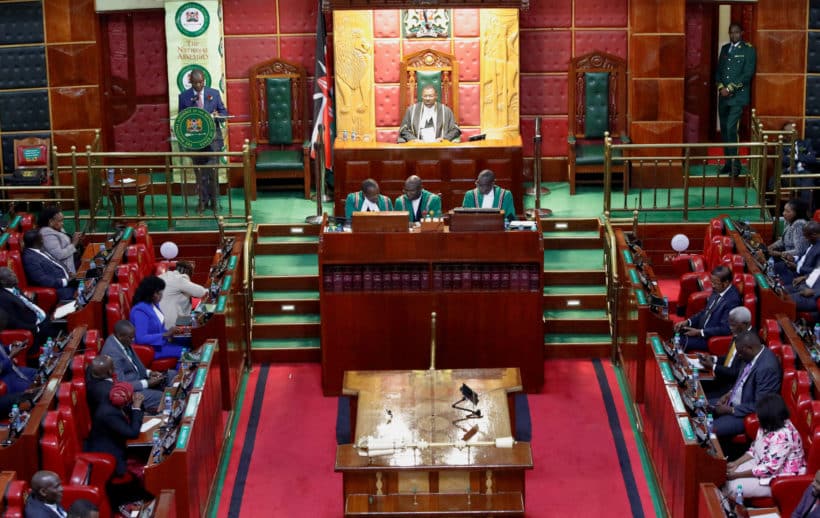
NAIROBI, June 13 (Reuters) – Kenya’s 2024/25 budget aims to tackle the country’s debt while protecting its fragile economic recovery, with growth estimated at 5.5% in 2024 and 2025, Finance Minister Njuguna Ndung’u said on Thursday.
Presenting the budget in parliament, Ndung’u said the fiscal deficit was expected to be 3.3% of gross domestic product (GDP), compared with a revised deficit of 5.7% for 2023/24.
Economic growth is expected to be in line with the ministry’s expectation of 5.5% this year from 5.6% in 2023.
“Kenya’s economy is unwinding from layers of negative and persistent shocks,” Ndung’u said, citing the effects of pandemic, and climate change related events such as devastating floods in 2023 and 2024.
He said policy efforts have reduced the cost of living and created vibrancy in an economy that is showing signs of a strong recovery.
Kenya’s economy is largely driven by agriculture, manufacturing, transport and storage, financial and insurance services and real estate.
Ndung’u told journalists earlier on Thursday that the budget would put emphasis on policies needed to strengthen and to support the fragile growth and recovery.
“We want to make sure that we revive the economy so that it can generate jobs for the youth. We want to revive the economy so that we can pay our debt. We have been buffeted by that,” he said.
DEBT MANAGEMENT
Kenya’s total public debt stands at an estimated 68% of GDP for fiscal 2023/24, and is expected to fall to 64.8% in 2024/25, according to the World Bank.
Ndung’u said total spending for the fiscal year 2024/35 is seen at 3.992 trillion Kenyan shillings ($31.19 billion). To finance the budget, Kenya aims to borrow 333.8 billion shillings from external sources, and 263.2 billion from the domestic market.
“The government will slow down uptake of new external commercial debt and undertake liability management operations through debt swaps and other innovative solutions,” he said.
The East African country sold a $1.5 billion international bond in February at a premium to fund the buyback of a large portion of a $2 billion bond maturing in June.
Before that, investors had feared Kenya might not be able to repay the bond due to its strained public finances.
Last week, parliament approved overall spending for the year at 4 trillion shillings, up from the 3.75 trillion shillings the minister presented last June for the 2023/24 year. That budget was later adjusted to 3.85 trillion shillings.
The 2024/25 budget will be accompanied by the Finance Bill 2024 that will come before parliament next week. The bill is a separate law outlining proposed tax increases on various goods and services, which critics say could cripple some sectors, including financial and internet services, transport, manufacturing and retail.
Ndung’u said measures in the bill are expected to bring in an extra 346.7 billion shillings in additional revenues.
The proposals have drawn strong resistance from the public, bankers and manufacturers, as well as from the Law Society of Kenya, which stated its views to a parliamentary committee reviewing the measures.
President William Ruto has said the measures are aimed at reducing Kenya’s reliance on borrowing to fund its budget.
Last week, the central bank governor said Kenya will use part of a $1.2 billion World Bank budget support loan to make a payment of roughly $500 million on a Eurobond maturing this month.
($1 = 128.0000 Kenyan shillings)
(Reporting by George Obulutsa; Editing by Bate Felix, Miral Fahmy, Hugh Lawson and Jane Merriman)

